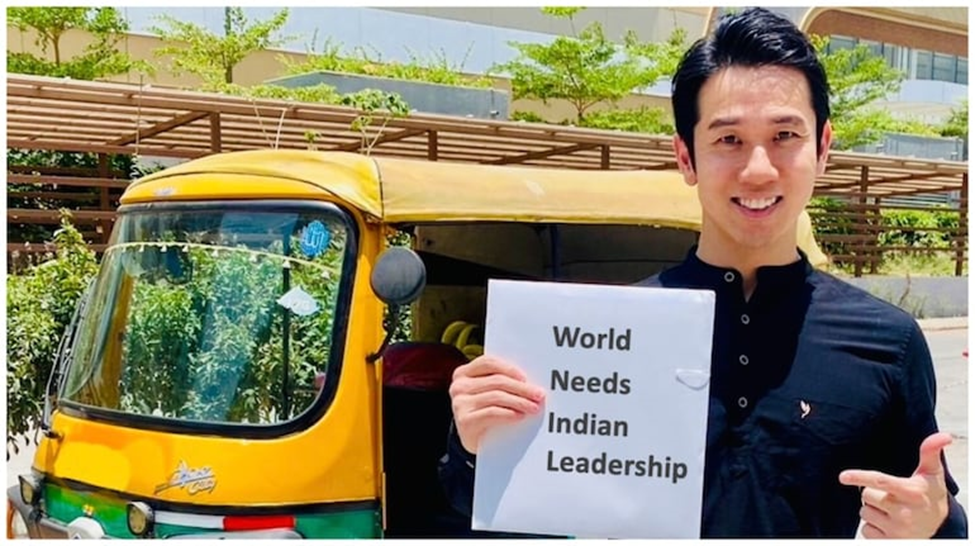The Japanese CEO's post about why the world needed India's leadership
- InduQin
- May 15, 2024
- 3 min read
In a LinkedIn post, Naotaka Nishiyama, the founder and CEO of Tech Japan, shared his perspective on the current state of the world. He described the world today as a "chaotic place to live in" and expressed the view that India is positioned to provide the necessary leadership to move the world forward.
Nishiyama highlighted that India's extensive domestic experiences have equipped the country with the necessary insights and wisdom to navigate the complexities of the modern global landscape. He believes that India's unique experiences and perspectives can serve as a guiding force to help steer the world in a positive direction during these challenging times.
A CEO of a Japanese firm who recently relocated to Bengaluru in April expressed admiration for India's culture, diversity, and values. Naotaka Nishiyama, the founder and chief executive of Tech Japan, took to the social networking platform LinkedIn to share his observations.
Nishiyama stated that the world today is a chaotic place, and he believes India is poised to provide the necessary leadership to guide the global community forward. He noted that India's extensive domestic experience across various fronts has equipped the country with the necessary insights and wisdom to navigate the complexities of the modern world.
The Japanese business leader expressed amazement at India's remarkable diversity and deeply-rooted values, which he believes can serve as a beacon for the rest of the world. Nishiyama's decision to relocate to Bengaluru underscores his desire to gain a deeper understanding of the Indian context and explore the potential for collaboration and mutual growth.
His sentiments reflect a growing recognition of India's rising prominence on the global stage and the unique perspectives it can offer in addressing the world's challenges. As a prominent figure in the Japanese business community, Nishiyama's endorsement of India's leadership potential carries significant weight and highlights the country's emerging influence in shaping the global discourse.
"World needs Indian leadership. It has been a month since I moved to India, and once again I am amazed at the diversity of values in India."
"It is a miracle that India is one country despite being a large country with various religions, races, and values. It is a good opportunity to think about leadership, as India is in the election season now," the man wrote in the post.
In his LinkedIn post, the Japanese business leader Naotaka Nishiyama highlighted the examples of Indian-origin CEOs Satya Nadella of Microsoft and Sundar Pichai of Google. Nishiyama observed that these examples demonstrate India's ability to produce leaders who can succeed in both competitive and collaborative global environments, positioning the country as well-suited to provide leadership within international organizations.
"In the business field, Neither Sundar Pichai nor Satya Nadella are second-generation Americans. They were born in India, educated in India, and then went to the U.S. for graduate school."
"In other words, it is only because India embodies both competition and collaboration that it is capable of leadership in a global organization," he wrote.
Nishiyama's LinkedIn post highlighting India's global leadership potential received praise and positive feedback from many users. Commenters applauded his insightful analysis and perspective on India's ability to contribute to the growth and development of the world.
"This is a very insightful and informative perspective. For me it talks to both the differences and richness of cultures and more specifically diversity. Their is immense richness in diversity if properly leveraged and harmonized which I think the India model confirms and demonstrates as per your articulation," one user wrote.
"Thanks Nishiyama san, really a very interesting depth analysis in almost minimum words. Having been in Japan for 1 year, I think there is still to learn a lot from Japanese culture. But your point about accepting and managing diversity in the current volatile time is very important and India: a nation of unity in diversity has a very important role to play," another user wrote.









Comments